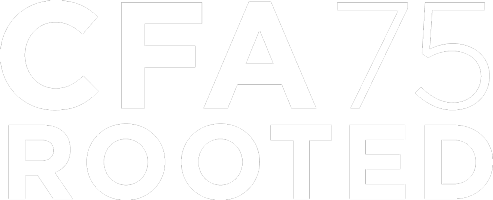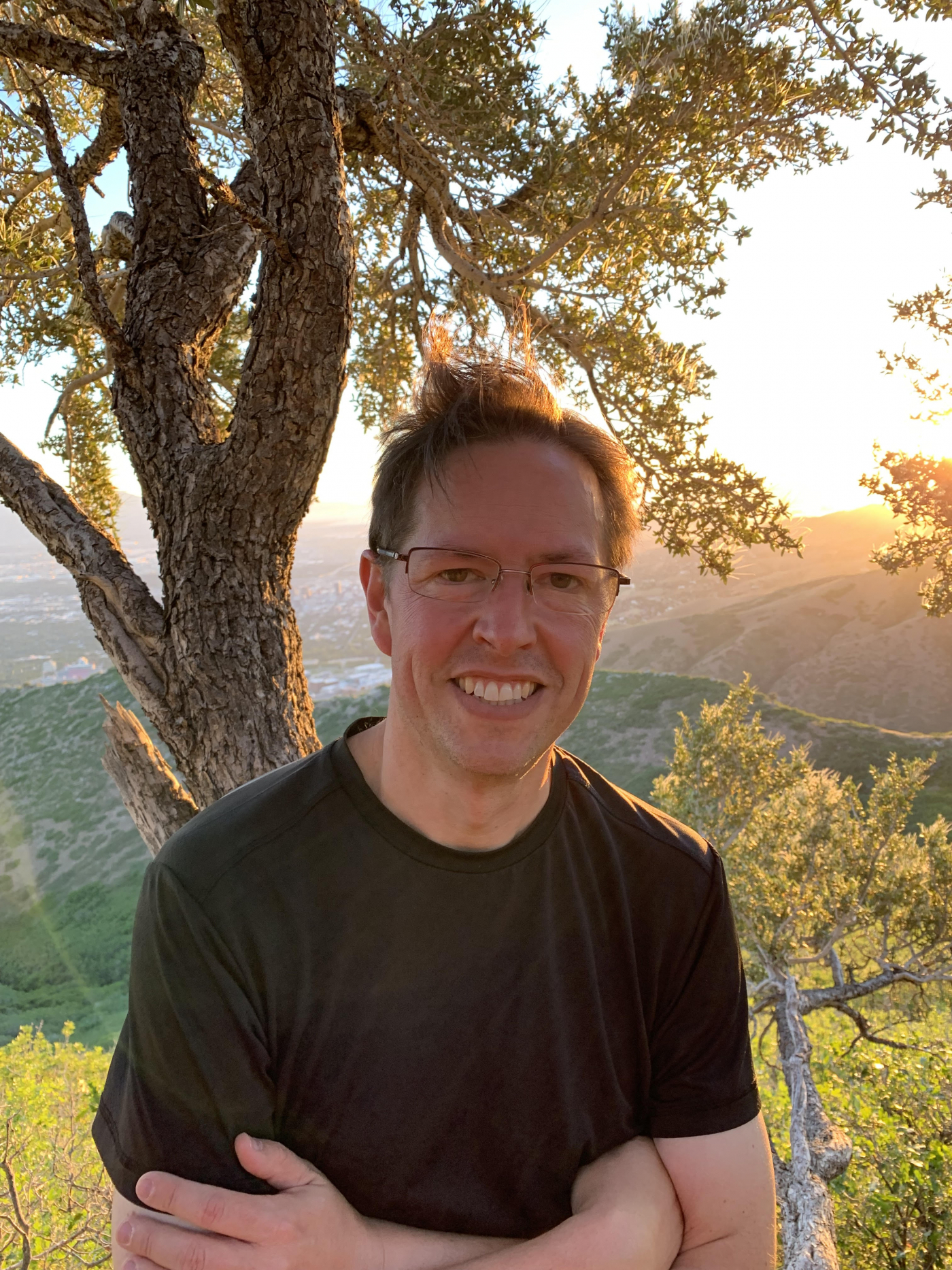MAKING ART WORK is a series that taps into the knowledge and experience of seasoned creatives from our community and beyond for the benefit of our students.
Matthew Robertson is a music educator at the Waterford School. An alumnus of the University of Utah, Robertson rigorously pursued music throughout his undergraduate studies, but ended up graduating in Human Development and Family Studies. He went on to earn a Master’s degree in Child Development at Wheelock College, and returned to the U many years later to earn his Master’s in Choral Conducting from the School of Music. He was previously a member of the music faculty at The Madeleine Choir School, where he was the Director of the St. Nicholas Choir and the MCS Chamber Orchestra. He remains an active professional musician throughout the Wasatch Front, where he is a section leader for Utah Chamber Artists, sings and records frequently with groups ranging from the Utah Symphony Chorus to The Piano Guys, has played the double-bass for the Orchestra at Temple Square, and serves as Associate Director of the Amavi Chorale.
How did you get your start in music? You come from quite the musical family! (Matthew is the grandson of the legendary composer and educator, Leroy Robertson, who was a former Chair of the U School of Music.)
I grew up knowing I came from a musical family. My grandpa Leroy actually died when I was only about 18 months old, but I grew up hearing all these stories about how he was my favorite person as a baby. I preferred going to him rather than going to my mom, and I preferred my mom to anyone else. Any connection that I had with music felt like a connection to my grandpa. That made it very special for me, and made me feel like I wanted music to be part of my life. Whenever times were difficult for our family, music was kind of a refuge for me.
I grew up doing lessons with the wonderful woman around the corner. Barlow Bradford, before he was Dr. Bradford, was then finishing his undergrad in piano performance. I met him because he married my cousin Jean. He offered to teach me piano lessons, and when I started with him when I was 14, I just took off like a rocket with music. Over the course of two years, I got to where I was ready to audition for and become a student of Gladys Gladstone Rosenberg, and she was then my piano teacher through my time at the University of Utah.
I was also a bassist. I played the bass all through high school, and I studied with David Yavornitsky, who was also on the faculty at the U— he is absolutely world class. So, I became a pretty good bassist, and a pretty good pianist, and then went to the U as a performance major going back and forth between the bass and the piano.
Especially as I started working with students from a lot of different backgrounds, I have grown to see so much value in stretching the horizons of music. Music comes from how many places, from how many traditions — and how can we use that as a way of teaching music and music principles? My students come from places all over the world. I want them to see themselves in the music that we're doing, and see their own traditions. We have a couple class mottos: Music comes from everywhere. And music is for everyone.
How did your career path shift to child development, and then business?
When I got married, I needed a job and began working in a child care center with really young kids. It was a university-sponsored child care center. I became interested in child development and actually graduated not in music, but in Human Development and Family Studies — but if you look at my transcript it doesn't look that way, it looks like I was clearly a music major!
I ended up doing a Master's in child development, and then from there I worked as the director of a child care center. But I didn't enjoy it at all because I didn't have any contact with children…there was no teaching. It was a lot of administration and business, working 12 hours a day, 6 days a week. I took a job in the insurance industry and ended up working in business for about 15 years. Eventually, I got a job helping to manage a warehouse for a giant retailer. The money was really good but I was miserable..
I talked to my wife about getting an MBA. She said in a very kind way, “You’ve never liked this, but you light up when you teach and when you play music. Maybe look into that?”
So you ended up going back to music at the U, for your Master's in Choral Conducting?
So, I was looking at going back for a second Bachelor’s and a teaching certificate. Over the years, I became fascinated with choral music. It was something I really loved and wanted to do and I had this vision of teaching high school choir. I called Dr. Bradford, because he was a longtime friend, and at that point he was doing choral music at the U. I said, “I really want to get your honest opinion on this. Here’s my current life situation, this is what I'm thinking about. Am I nuts?”
He said, “Yes, you are nuts, AND I think you might be really good at it.” I knew him well enough that when it came to music he’s always going to give it to you straight. He suggested I come to the U, that it might be possible to go into a Master’s program because I had so much music background. I was accepted into the Masters of Choral Conducting program as long as I did a few refreshers and some courses I had missed. A few weeks later we were packing up our home in Oregon and moving back to Utah. My family was unbelievably supportive.
Over many years of teaching, how has your philosophy evolved?
Especially as I started working with students from a lot of different backgrounds, I have grown to see so much value in stretching the horizons of music. Music comes from how many places, from how many traditions — and how can we use that as a way of teaching music and music principles? My students come from places all over the world. I want them to see themselves in the music we're doing, and see their own traditions. We have a couple class mottos: Music comes from everywhere. And music belongs to everyone.
Another thing I consider a lot is: Who should I encourage to pursue performance as a career? On the track that I was on, I wasn’t going to become a professional, world-class symphony bassist. I wasn't going to get a job on a piano teaching faculty of a University. I feel like if you're going to do piano or bass, those are kind of two of the big paths you might take. When I came back to music later, I definitely came with the mindset of needing to be ready to teach. The good news for me was I loved it, I didn't see it as an also-ran kind of career. If people are going to go into teaching I think you have to love teaching, you can't just love music. I love teaching and music happens to be my area, versus I love music and I'm finding a way that I might make money doing it.
What were the most meaningful people or experiences throughout your time at the U?
One of the most important aspects of my graduate experience was my peer group. I went through the choral conducting program together with Sonja Poulter and Eric Schmidt who were both working on their DMAs. So much of what I learned happened in little conversations after rehearsals or in "the class after the class" when we would go to lunch and debrief what we were learning. Even though they had so much more experience than I did, they always treated me as an equal. And I feel the same thing now that they are both off teaching at Universities. If I ever want to bounce an idea off of someone they are two of the first people I call.
One of the most meaningful courses to me was Music Theory with Tully Cathey. He had a way of teaching music theory where I could see the connections to performance, I could see the connections of how music is put together, and what makes music great. I started looking at music theory as the undergirding of everything that I was doing, instead of seeing it as a separate intellectual pursuit. When I was an undergrad, I had Roger Miller for Music History, and that was the first time that I remember starting to see any kind of history as this active living breathing thing, influenced by people’s choices instead of being this thing that just happens. I also learned conducting not only from Barlow, but Robert Baldwin and that was invaluable as well.
If people are going to go into teaching I think you have to love teaching, you can't just love music. I love teaching and music happens to be my area, versus I love music and I'm finding a way that I might make money doing it.
What advice do you have for students?
The first thing I would say is that having music be its own pursuit, just as something that is part of your life and not necessarily a vocation is 100% legitimate. That's really okay. I know people who did music as a bachelor's degree and then went on and were fabulous pianists who became doctors in medicine, or went on to engineering, or lots of other fields. To do performance as a vocation, you have to be realistic about how ultra-competitive it is. Very few people really make it in the performance world, and so thinking of yourself as someone who is going to play in community orchestras, or sing in community choirs, and have it be something you're doing on the side is totally legitimate.
And if you don't love, love, love education I wouldn't do it. Teach because you love teaching and then become absolutely as good as you can at music, because you can't be a great music teacher if you're not a terrific musician.


